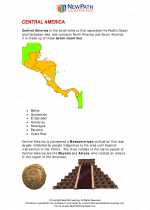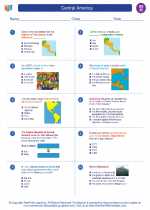Climate Change
Climate change refers to significant and lasting changes in the Earth's climate, including changes in temperature, precipitation, and wind patterns. This phenomenon is primarily driven by human activities, such as the burning of fossil fuels, deforestation, and industrial processes, which release greenhouse gases into the atmosphere.
Causes of Climate Change
The primary causes of climate change include:
- Burning of Fossil Fuels: The combustion of coal, oil, and natural gas releases carbon dioxide and other greenhouse gases into the atmosphere, which trap heat and contribute to global warming.
- Deforestation: The clearing of forests reduces the number of trees that can absorb carbon dioxide, leading to higher levels of greenhouse gases in the atmosphere.
- Industrial Processes: Various industrial activities, such as cement production and chemical manufacturing, release greenhouse gases into the atmosphere.
- Agriculture: Certain agricultural practices, such as livestock farming and rice cultivation, release methane and nitrous oxide, which are potent greenhouse gases.
Effects of Climate Change
Climate change has far-reaching effects on the environment, ecosystems, and human societies, including:
- Rising Sea Levels: Melting polar ice caps and glaciers contribute to the rise in sea levels, leading to coastal erosion and flooding.
- Extreme Weather Events: Climate change increases the frequency and intensity of extreme weather events, such as hurricanes, droughts, and heatwaves.
- Disruption of Ecosystems: Changes in temperature and precipitation patterns can disrupt ecosystems, leading to the loss of biodiversity and the extinction of species.
- Impact on Agriculture: Climate change can affect crop yields, water availability, and the spread of pests and diseases, posing challenges to food security.
- Health Impacts: Climate change can exacerbate air pollution, spread vector-borne diseases, and increase the risk of heat-related illnesses.
Mitigation and Adaptation
To address climate change, mitigation and adaptation strategies are essential:
- Mitigation: This involves reducing greenhouse gas emissions through measures such as transitioning to renewable energy sources, improving energy efficiency, and implementing policies to limit emissions from various sectors.
- Adaptation: This involves adjusting to the impacts of climate change by implementing measures such as building resilient infrastructure, developing drought-tolerant crops, and implementing early warning systems for extreme weather events.
Study Guide
When studying climate change, it's important to focus on the following key areas:
- Understanding the greenhouse effect and the role of greenhouse gases in trapping heat in the Earth's atmosphere.
- Identifying the major human activities that contribute to greenhouse gas emissions and their impact on the climate.
- Exploring the various impacts of climate change on the environment, ecosystems, and human societies.
- Examining mitigation and adaptation strategies aimed at addressing climate change at local, national, and global levels.
By understanding these key concepts, students can gain a comprehensive understanding of climate change and its implications for the planet.
[Climate Change] Related Worksheets and Study Guides:
.◂Social Studies Worksheets and Study Guides Eighth Grade. Central America

 Worksheet/Answer key
Worksheet/Answer key
 Worksheet/Answer key
Worksheet/Answer key
 Worksheet/Answer key
Worksheet/Answer key
